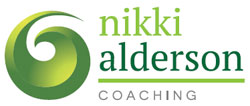Barristers in the grip of a mental health crisis
According to an article in The Guardian (6.5.18), Barristers in England and Wales are “in the grip of a mental health crisis”.
A survey for The Bar Council reveal that nearly half of participating counsel said they worked over 60 hours and only 50% said they felt able to balance their home and work lives. Statistics for The Bar Council’s “Wellbeing at the Bar” initiative suggest that 1 in 3 barristers find it difficult to control or stop worrying, and 2 out of 3 feel that showing signs of stress equals weakness.
With these shocking statistics in mind then, my top 7 tips for improved wellbeing at work within the legal profession:
-
Connect
Network to build your practice; likewise, network to create a supportive team around you. Your pupil supervisor or managing partner may be the first and obvious port of call; but as your practice develops, think other important relationships: with instructing solicitors, court staff, senior colleagues who may invite you to be their junior or the next promoted partner, even the judiciary when it comes writing a reference for when you apply for silk or the judiciary.
Special interest groups also offer important Peer to Peer support E.g. The Criminal Bar Association, Family Law Bar Association, Women In Criminal Law, Women In The Law UK
These organisations can be credited with helping to combat the negative effects of lengthy commutes, long working hours, reducing time with family/ friends, the challenges of committing to social engagements, even loneliness.
In Wellbeing at the Bar, The Bar Council Wellness initiative, Mr Justice Henry Carr said “It is vital to recognise that sharing your anxieties isn’t a sign of weakness.” Keep channels of communication open to share with trusted confidantes any bumps in the road.
-
Develop Mental Toughness/ Resilience through focus, planning & distraction avoidance
In this day and age, it is an increasing problem that as the world gets smaller and more accessible, our working days become longer as we are more “available” for work for longer periods of time.
For that reason, I strongly recommend planning your day: As Jim Rohn said “You run the day or the day runs you.” Equipped with a daily plan,you can work more efficiently in the unexpected “free” time, by prioritising your work load to ensure your best outcomes and mark off and feel good about your achievements as you meet them.
Also know, however, that with the unpredictability and demanding hours in law, it may be you don’t meet all these plans, and that is ok too.
Avoid distraction by being fully “present” in whatever task you undertake. Work whilst at work; have family time whilst with your family.
Be bold:
- Turn off email notifications & only check at set times during the working day, E.g. 12.30pm and 4.30pm
- Activate airplane mode for a fully immersive level of concentration
- Utilise the “Out of office” automatic email response for set times during the working day
- Remove Social Media apps from your mobile devices and set strict times for access
- Take regular breaks and keep “proper” hours
Finally, shift your focus: focus on your performance and not the case result. Harking back to the advice of Mr. Justice Carr: “Maintaining a healthy life balance helps keep work triumphs and disasters in perspective”
-
Learn to say no
This can be a real challenge for many, and when mastered, hugely liberating. I have blogged about this before, (https://www.nikkialdersoncoaching.com/stop-saying-yes-start-saying-no-guest-blog-for-the-law-society-10th-july-2018/).
To summarise:
- Ask “whose plan am I working to?”
- Think “To what am I prepared to say yes”
- Learn the art of saying no through repeated practice.
-
Adopt A Positive Mind-set
Look at your words, thoughts and behaviour and ask whether there are positive adjustments to be made which would more positively affect your outcomes.
In my experience, positive thoughts & language- combined with positive actions- lead to more positive outcomes.
For further examples, please read: https://www.nikkialdersoncoaching.com/positive-mind-positive-outcomes/
-
Keep active/ hydrated & change state
Keep active and well hydrated. It’s so easy to skip lunch with deadlines, conferences and countless other things on the “to do” lists, but keeping water levels topped up is vital to improve muscle function, digestion and even our state of mind.
Likewise, a focused effort to change our state can soon fix that afternoon eye flicker – do a few star jumps in a quiet area of the office for a quick burst of energy! A change in state can work wonders for energy levels, and alter how alert we feel.
-
Practise gratitude
You may already have experienced a difficult judge, managing partner or client. Firstly, remember to remain calm under pressure.
Then, even in the moments of extreme pressure and overwhelm, on the commute home for example, be grateful for a beautiful sunset, your favourite song playing on the radio, your friends/ family. It’s amazing how quickly focusing on the positives can put into perspective, and most importantly reduce the extent of, the negatives.
For the tricky stuff, always keep in mind my favourite quote, and use as a mantra: “This too shall pass”; it will.
-
Be Authentic
Finally, and most importantly, be authentic– it’s so easy to get caught up in life’s busy-ness, working hard to climb the ladder of success, only to discover that all that time the ladder has been leaning against the wrong wall. Put your ladder against the right wall before start climbing:
“Live a life true to yourself, not the life others expect”
Let these top tips support you in your quest to stay well. If in doubt, talk: Someone will be better placed to help if you feel able to communicate/ share with them
Nikki Alderson Biography
Nikki Alderson is a former criminal barrister, now Corporate and Executive Coach supporting law firms and Chambers to attract and retain female talent within the legal profession and empowering female lawyers to achieve career ambitions whilst creating congruent lives. Having gained great insights into the responsibilities, pressures and “expected” career paths of those, particularly women, working in law, Nikki sees a challenge within the profession, which she hopes to address through coaching, of retaining talented women role models, given the dearth of women in senior partnership roles and within the judiciary
Follow Nikki on
https://www.linkedin.com/in/nikkialdersoncoaching/
https://twitter.com/NikkiAlderson2

